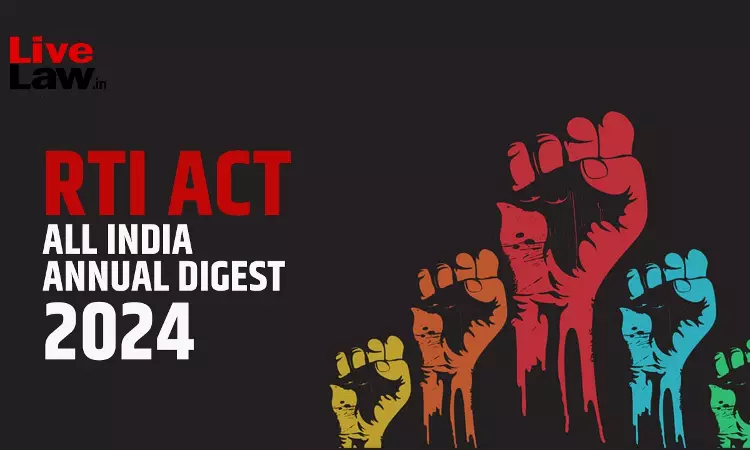Right To Information (RTI) Act: All India Annual Digest 2024
LIVELAW NEWS NETWORK
17 Feb 2025 8:30 AM IST

Next Story
17 Feb 2025 8:30 AM IST
SUPREME COURTSection 12(4) – Validity of Central Information Commission (Management) Regulations, 2007 framed by the Chief Information Commissioner (CIC) under Section 12(4) of the RTI Act – Powers of the CIC – Held, the use of the words “superintendence, direction and management” in Sections 12(4) of the RTI Act clearly provides the CIC an ambit of power wide enough to frame its...
